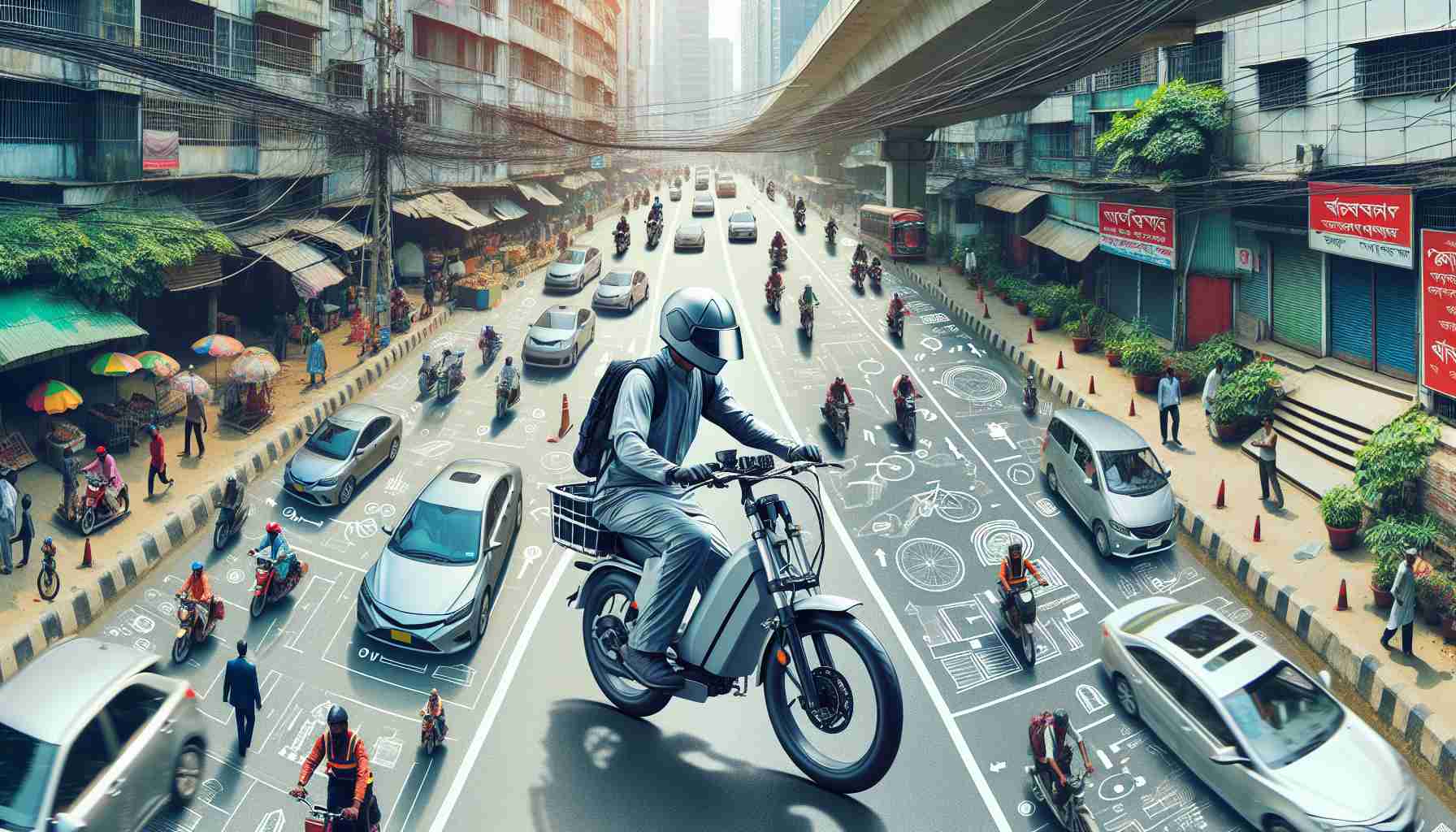While electric cars are making their mark on the roads, their two-wheeled counterparts, e-bikes, have been slower to gain traction in Bangladesh. Despite the potential for green mobility solutions, e-bikes face several challenges that hinder their widespread use.
One of the major obstacles is the lack of infrastructure. Unlike electric cars, which have dedicated lanes and charging stations, e-bikes struggle to find the necessary support. This is particularly true outside of metropolitan areas, where the sporadic presence of charging stations makes long commutes difficult. Additionally, e-bikes are not well-suited for harsh weather conditions and lack the convenience of cargo space, limiting their versatility.
Another challenge stems from cultural attitudes. E-bikes are often seen as inferior alternatives, suitable only for second-class applications like making deliveries. This mindset hampers their acceptance as a respectable and mainstream form of transportation, impeding their adoption.
Regulatory barriers further complicate the integration of e-bikes with regular traffic. Vague classifications and an uncertain legal framework create confusion for manufacturers, consumers, and policymakers alike. This regulatory maze slows down market growth and innovation, leaving e-bikes in a gray area of the law.
Despite these challenges, the e-bike industry in Bangladesh is showing promise. Major players like Walton, Runner, Akij Motors, and Green Tiger are introducing new models to cater to eco-conscious consumers. These companies are bridging the affordability gap by offering electric scooters and bikes with unique features and competitive prices.
Furthermore, foreign firms are entering the market, bringing popular electric bike models from around the world to Bangladeshi consumers. This influx of competition hints at a fast-growing market that is poised for global participation.
To fully realize the potential of e-bikes in Bangladesh, a combination of innovation, policy changes, and public awareness is needed. Investments in infrastructure, regulatory clarifications, and incentives for manufacturers and consumers can ignite an e-bike revolution. By envisioning a future where electric vehicles, including e-bikes, are the norm rather than a novelty, Bangladesh can move towards a more sustainable and inclusive transportation system.
While the challenges are significant, they are not insurmountable. With the right measures in place, Bangladesh can become a hub for electric vehicle technology and innovation, generating jobs and driving the country towards a greener future. The decisions made today will shape the path towards a more e-bike-friendly tomorrow, where green and efficient mobility is a reality for all.
The e-bike industry in Bangladesh operates within the larger context of the global electric vehicle market, which is projected to grow exponentially in the coming years. According to a report by MarketResearchFuture, the global e-bike market is expected to reach a value of $38.6 billion by 2025, with a compound annual growth rate of 9.01% during the forecast period from 2019 to 2025.
In Bangladesh, the e-bike market is still in its early stages, but it is gaining momentum. The potential for e-bikes as a green alternative to traditional motorcycles and bicycles is increasingly recognized by consumers. Rising concerns over air pollution and fuel costs are driving the demand for electric vehicles, including e-bikes.
However, several issues specific to the Bangladeshi market hinder the widespread use of e-bikes. As mentioned in the article, the lack of infrastructure, including charging stations, is a significant obstacle. Without a robust network of charging stations, e-bike users face range anxiety and limited options for long-distance travel.
Weather conditions in Bangladesh also pose challenges for e-bike use. Harsh monsoons and extreme temperatures can impact the battery life and performance of e-bikes. Manufacturers need to address these concerns by developing weather-resistant e-bikes that can withstand the local climate.
Cultural attitudes towards e-bikes also play a role in their adoption. Overcoming the perception that e-bikes are inferior or only suitable for specific applications requires targeted marketing campaigns to educate the public about the benefits and capabilities of e-bikes. Demonstrating how e-bikes can be a viable and practical mode of transportation for various purposes, including daily commuting and leisure riding, can help change these attitudes.
Improving the regulatory framework is another crucial aspect. Clear classifications, standards, and regulations specific to e-bikes need to be established to provide clarity for manufacturers, consumers, and policymakers. This will promote consumer confidence, encourage innovation, and facilitate the growth of the industry.
The entry of both domestic and foreign players into the market indicates a growing interest in the e-bike industry in Bangladesh. Major local companies, such as Walton, Runner, Akij Motors, and Green Tiger, are introducing new models to cater to the local market. At the same time, foreign firms are bringing popular e-bike models from around the world to offer more options to Bangladeshi consumers.
To fully realize the potential of e-bikes in Bangladesh, investments in infrastructure, such as charging stations, need to be made to support the growing number of e-bike users. Additionally, regulatory reforms and incentives for manufacturers and consumers can further stimulate the market. Public awareness campaigns highlighting the environmental, health, and cost benefits of e-bikes can also contribute to their wider acceptance and adoption.
Overall, while the challenges facing the e-bike industry in Bangladesh are significant, the growth potential and opportunities for a greener and more sustainable future are substantial. By addressing these challenges and implementing the necessary measures, Bangladesh can become a hub for electric vehicle technology and innovation, creating jobs and driving the country towards a more environmentally-friendly transportation system.
For more information about the global electric vehicle market, you can visit the following link: Electric Vehicles Market.







